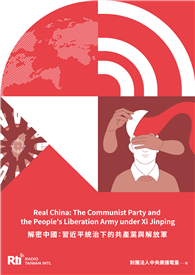Looking like a Language, Sounding like a Race examines the emergence of linguistic and ethnoracial categories in the context of Latinidad. The book draws from more than twenty-four months of ethnographic and sociolinguistic fieldwork in a Chicago public school, whose student body is more than 90% Mexican and Puerto Rica, to analyze the racialization of language and its relationship to issues of power and national identity. It focuses specifically on youth socialization to U.S. Latinidad as a contemporary site of political anxiety, raciolinguistic transformation, and urban inequity.
Jonathan Rosa’s account studies the fashioning of Latinidad in Chicago’s highly segregated Near Northwest Side; he links public discourse concerning the rising prominence of U.S. Latinidad to the institutional management and experience of raciolinguistic identities there. Anxieties surrounding Latinx identities push administrators to transform ’at risk’ Mexican and Puerto Rican students into ’young Latino professionals.’ This institutional effort, which requires students to learn to be and, importantly, soundlike themselves in highly studied ways, reveals administrators’ attempts to navigate a precarious urban terrain in a city grappling with some of the nation’s highest youth homicide, dropout, and teen pregnancy rates. Rosa explores the ingenuity of his research participants’ responses to these forms of marginalization through the contestation of political, ethnoracial, and linguistic borders.
| FindBook |
有 1 項符合
Looking Like a Language, Sounding Like a Race: Raciolinguistic Ideologies and the Learning of Latinidad的圖書 |
 |
Looking Like a Language, Sounding Like a Race: Raciolinguistic Ideologies and the Learning of Latinidad 作者:Rosa 出版社:Oxford Univ Pr 出版日期:2019-01-22 語言:英文 規格:平裝 / 15.9 x 23.5 x 1.9 cm / 普通級 |
| 圖書館借閱 |
| 國家圖書館 | 全國圖書書目資訊網 | 國立公共資訊圖書館 | 電子書服務平台 | MetaCat 跨館整合查詢 |
| 臺北市立圖書館 | 新北市立圖書館 | 基隆市公共圖書館 | 桃園市立圖書館 | 新竹縣公共圖書館 |
| 苗栗縣立圖書館 | 臺中市立圖書館 | 彰化縣公共圖書館 | 南投縣文化局 | 雲林縣公共圖書館 |
| 嘉義縣圖書館 | 臺南市立圖書館 | 高雄市立圖書館 | 屏東縣公共圖書館 | 宜蘭縣公共圖書館 |
| 花蓮縣文化局 | 臺東縣文化處 |
|
|
圖書介紹 - 資料來源:博客來 評分:
圖書名稱:Looking Like a Language, Sounding Like a Race: Raciolinguistic Ideologies and the Learning of Latinidad
|











